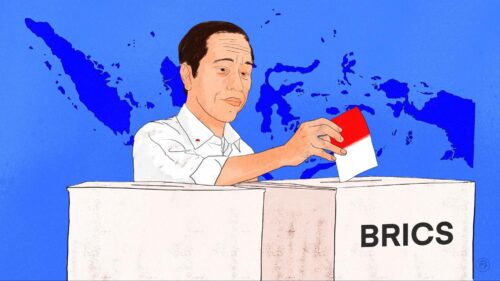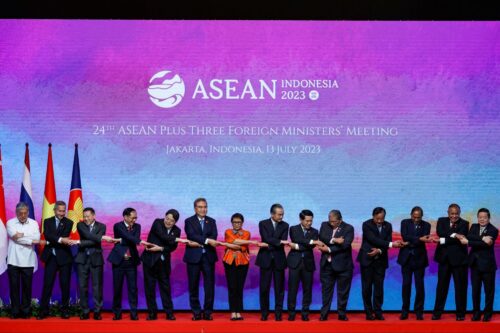U.S. denounces Beijing’s claims in the South China Sea, sides with five Southeast Asian countries
Washington has long disapproved of many of China’s maritime claims, but today, the State Department formalized its position on multiple disputes. The U.S. now effectively supports claims to reefs, shoals, waters, and other maritime features by the Philippines, Vietnam, Malaysia, Brunei, and Indonesia over China.

Starting a decade ago, when then Secretary of State Hillary Clinton emphasized that the U.S. has an interest in “freedom of navigation” in the South China Sea and offered, to China’s chagrin, to assist in negotiations to settle disputes, Washington has regularly criticized Beijing’s maritime claims to the south. But when it came to officially supporting any other nation’s claims to contested maritime territory, the U.S. position was neutrality.
That has, in effect, changed today, as the U.S. State Department issued a press statement titled “U.S. Position on Maritime Claims in the South China Sea.” The statement says that “Beijing’s claims to offshore resources across most of the South China Sea are completely unlawful,” and implies that Washington now sides with five Southeast Asian countries over China:
- The statement argues that “the PRC has no lawful territorial or maritime claim to Mischief Reef or Second Thomas Shoal, both of which fall fully under the Philippines’ sovereign rights and jurisdiction.”
- Four other countries are specified: The “United States rejects any PRC maritime claim in the waters surrounding Vanguard Bank (off Vietnam), Luconia Shoals (off Malaysia), waters in Brunei’s EEZ, and Natuna Besar (off Indonesia).”
- An underwater feature is named: “The PRC has no lawful territorial or maritime claim to (or derived from) James Shoal, an entirely submerged feature only 50 nautical miles from Malaysia and some 1,000 nautical miles from China’s coast.”
The U.S. did not reject every claim that Beijing makes in the South China Sea, and the Associated Press notes that the statement “does not involve disputes over land features that are above sea level, which are considered to be ‘territorial’ in nature.” And though the U.S. will continue to officially claim neutrality on the disputes the statement does mention, with the new position, the U.S. is “in effect siding with Brunei, Indonesia, Malaysia, the Philippines and Vietnam.”
A “rules-based international order” that the U.S. rejects
The obvious irony in the State Department press release is that the U.S. criticizes China’s claims on a basis that it refuses to be judged by itself.
Washington wants to “uphold freedom of the seas in a manner consistent with international law,” the State Department says, adding that the U.S. has “deep and abiding interests with our many allies and partners who have long endorsed a rules-based international order.”
But the international law cited is the “1982 Law of the Sea Convention,” also known as the United Nations Convention on the Law of the Sea (UNCLOS), which the United States famously did not ratify.
That doesn’t make the criticism invalid, but it makes it much easier for Beijing to ignore. The “practical impact wasn’t immediately clear,” the AP says, because the “U.S. is not a party of the UN Law of the Sea treaty that sets out a mechanism for the resolution of disputes.”
Almost exactly four years ago, a maritime dispute arbitration between the Philippines and China was decided almost entirely in the Philippines’ favor, but China chose to ignore that ruling. The Philippines has continued to call on China to abide by that ruling.
Correction: Hillary Clinton in 2010 was not the first U.S. official to articulate an American interest in “freedom of navigation” in the South China Sea, as previously implied, but rather the first Secretary of State to offer to assist in negotiations to settle disputes between China and Southeast Asian countries, particularly Vietnam.






